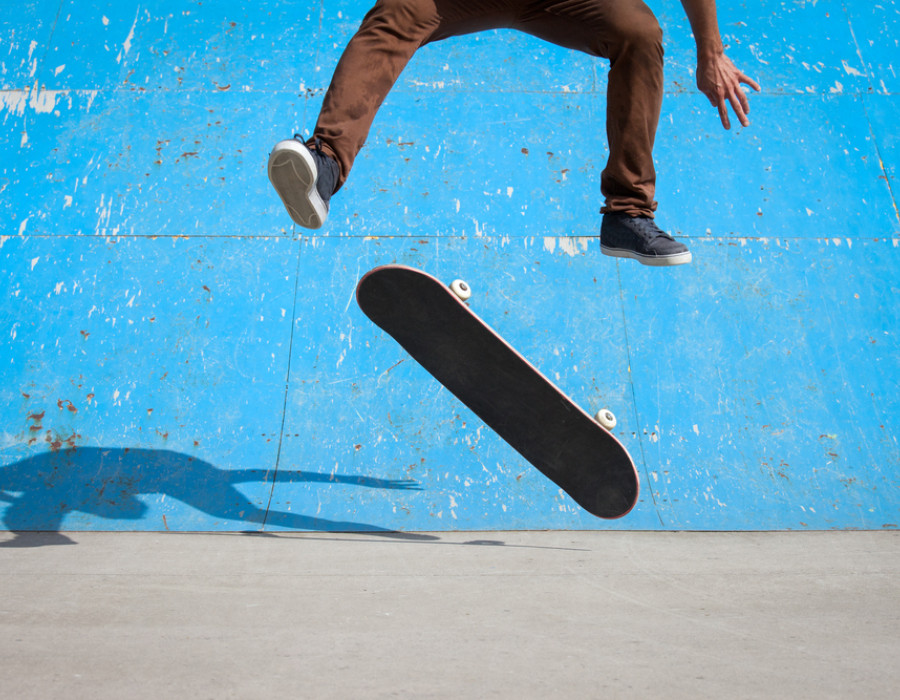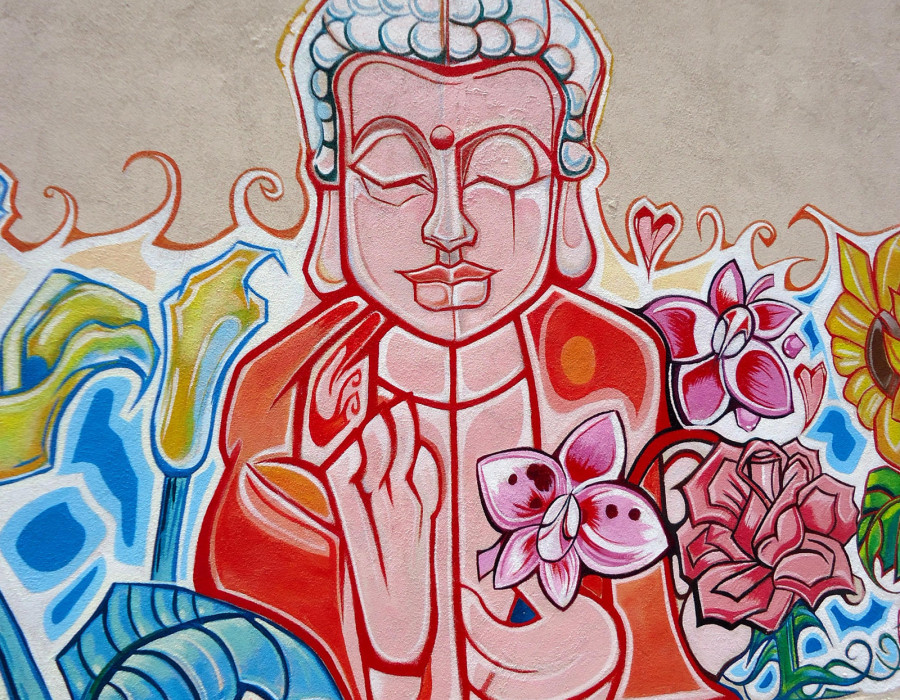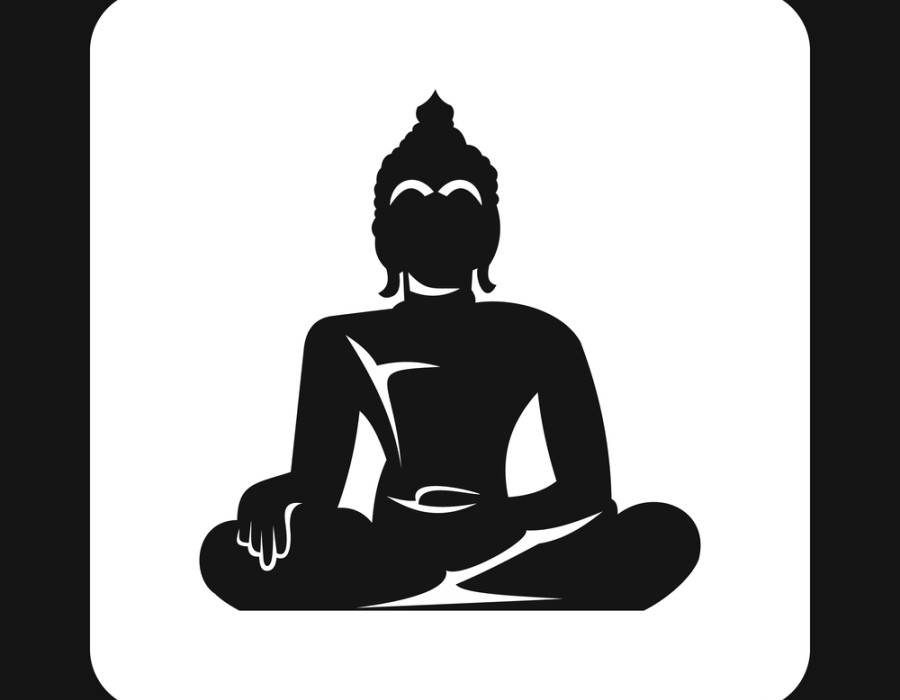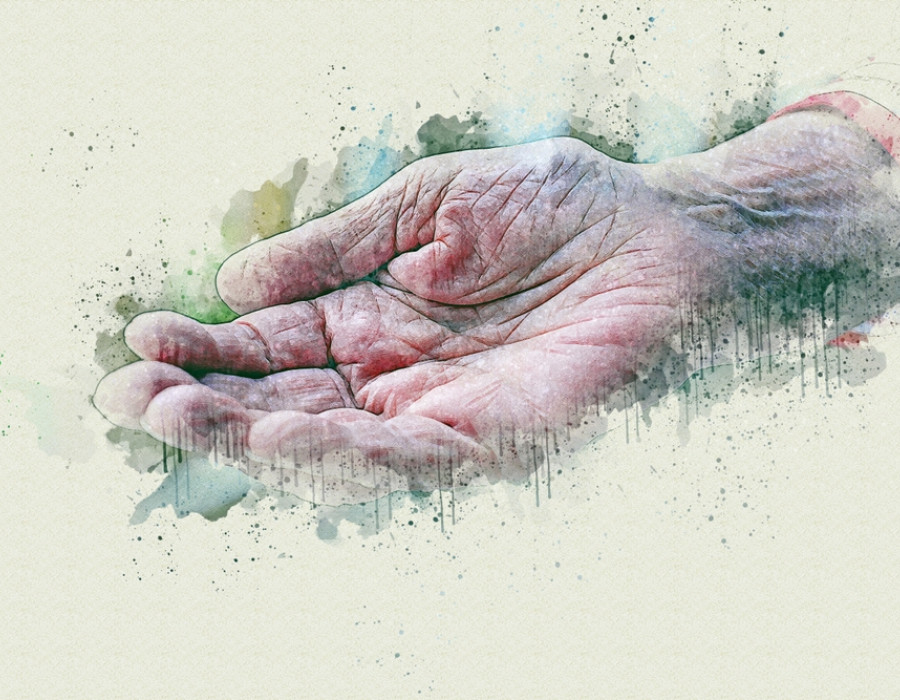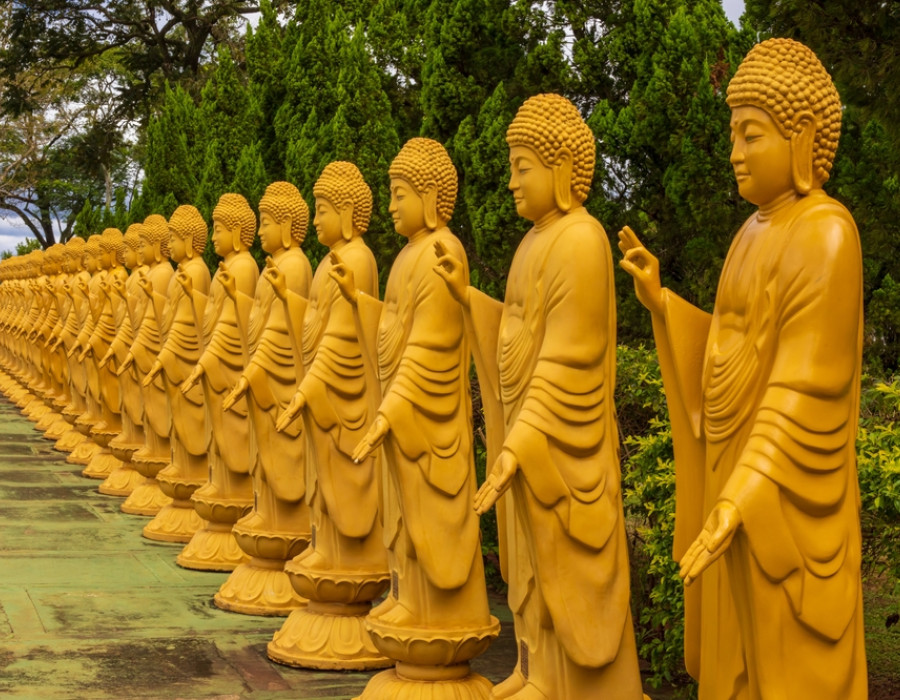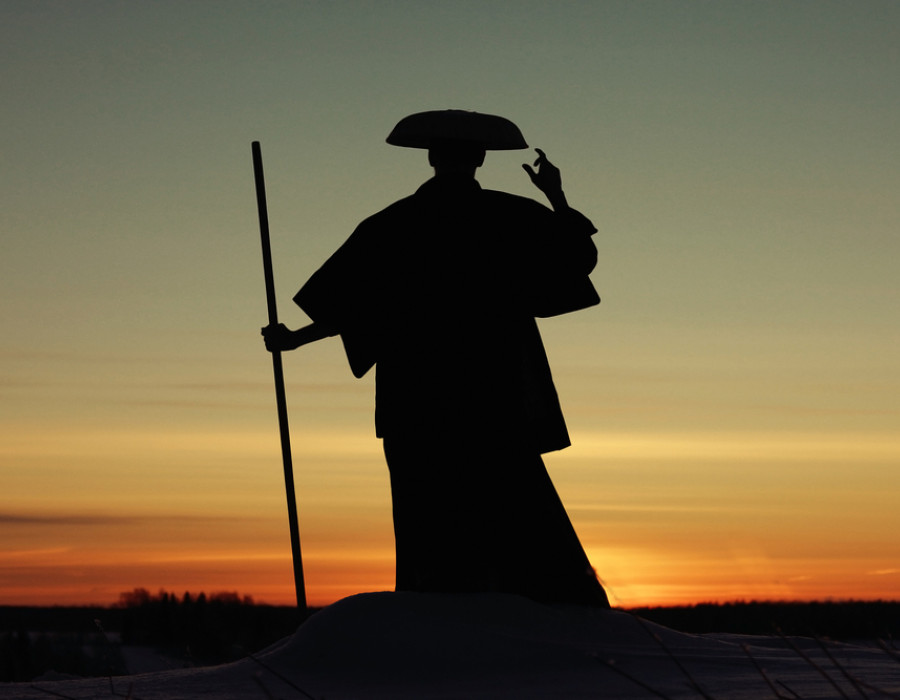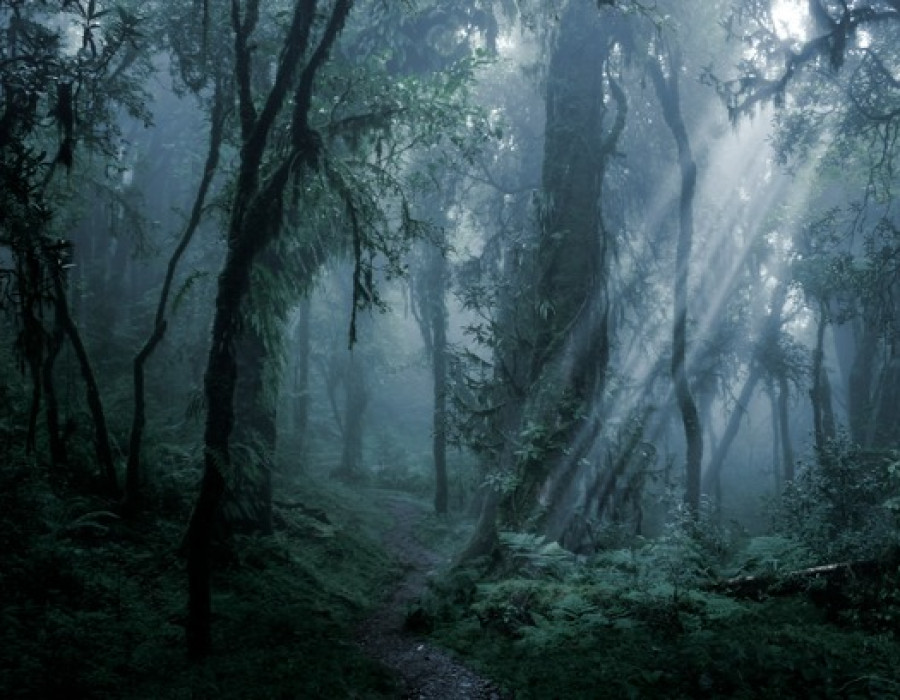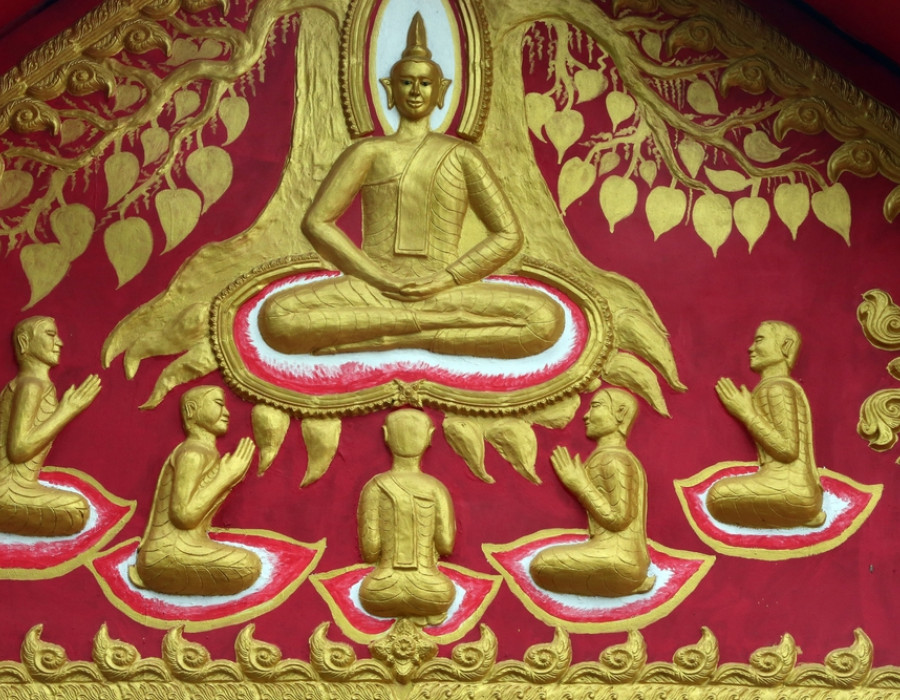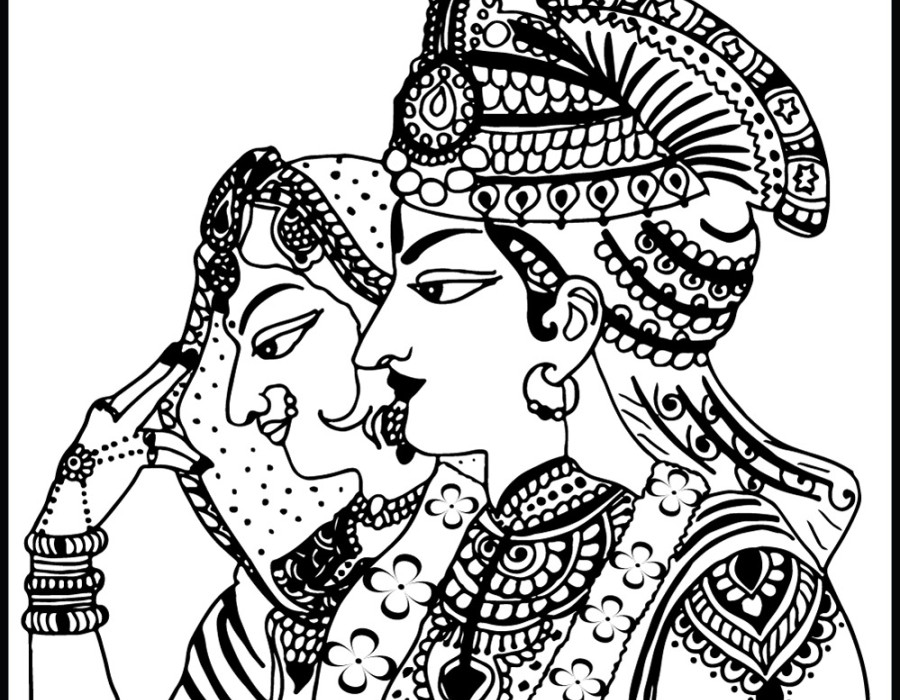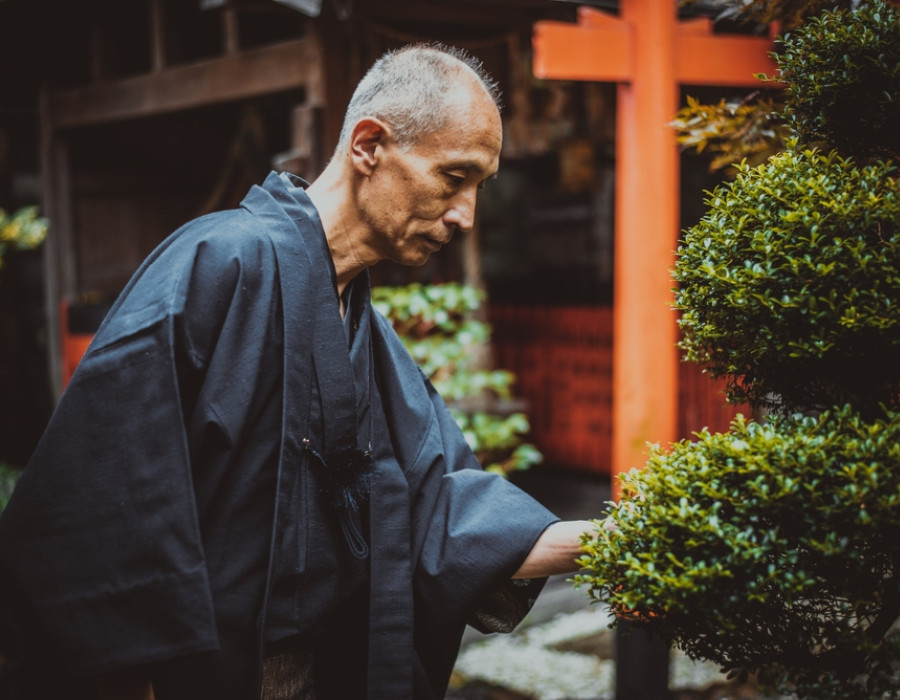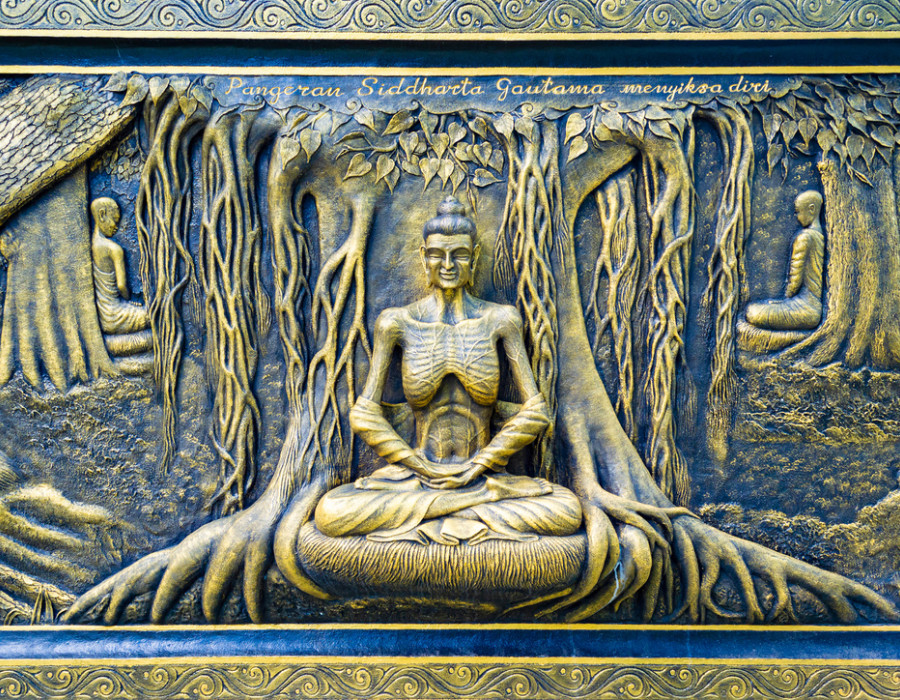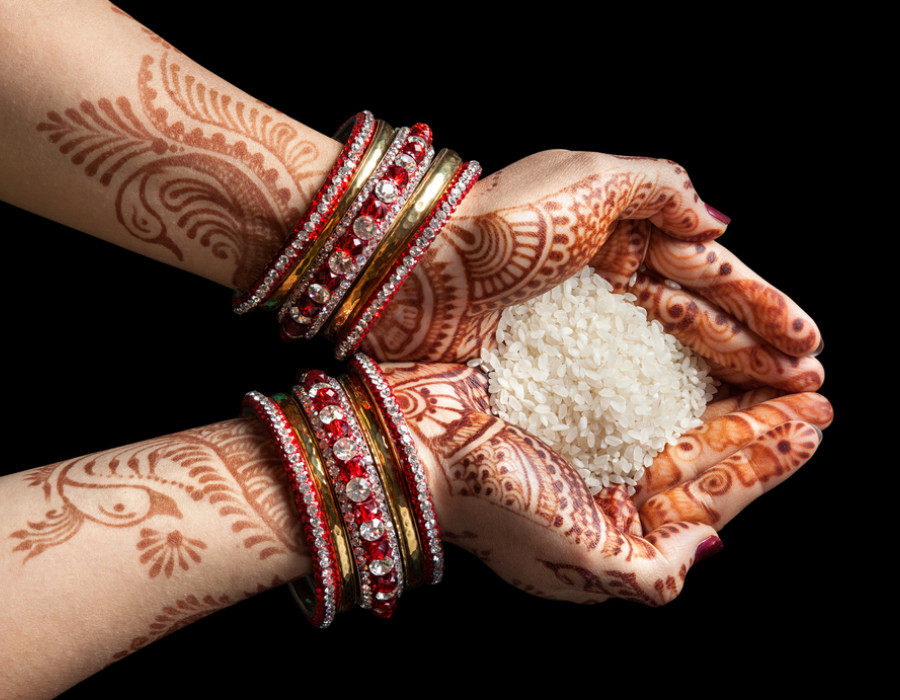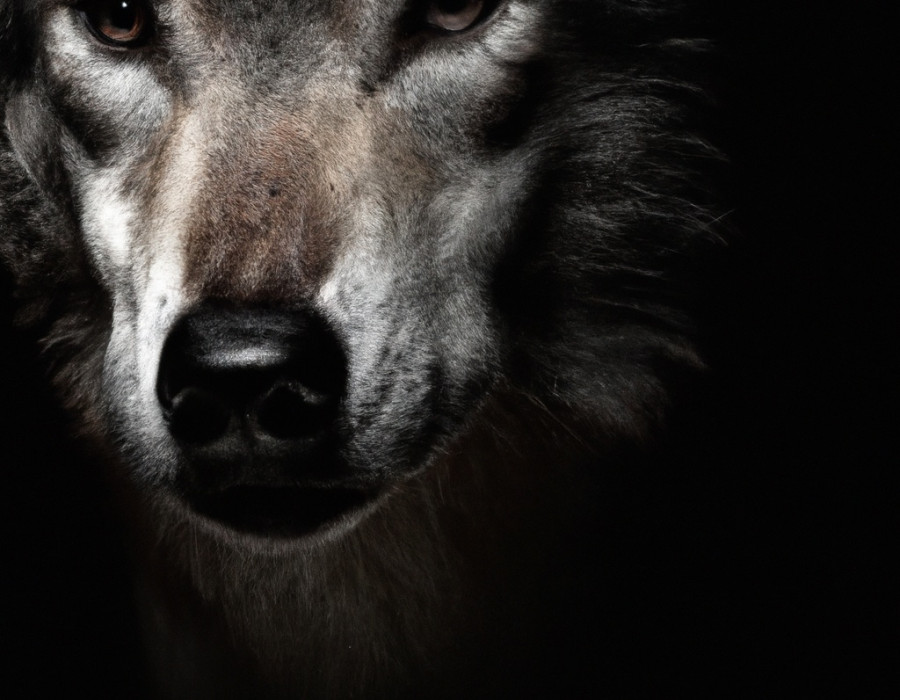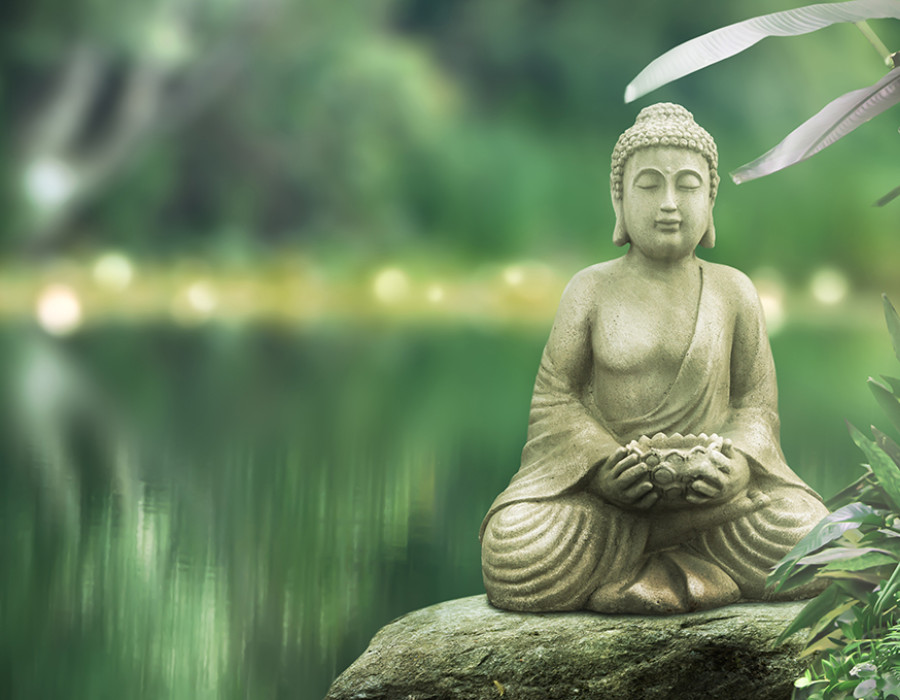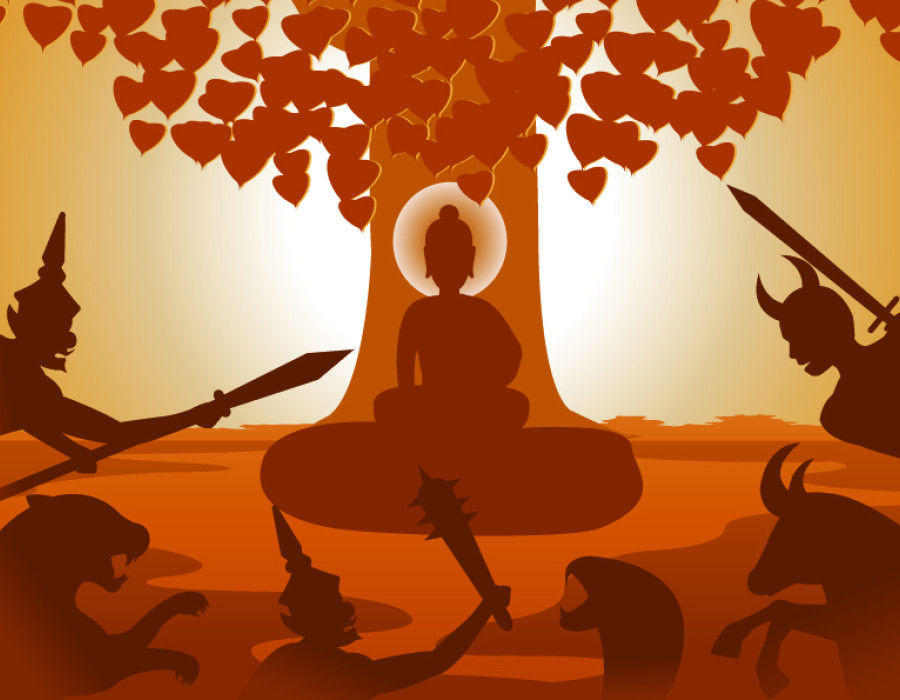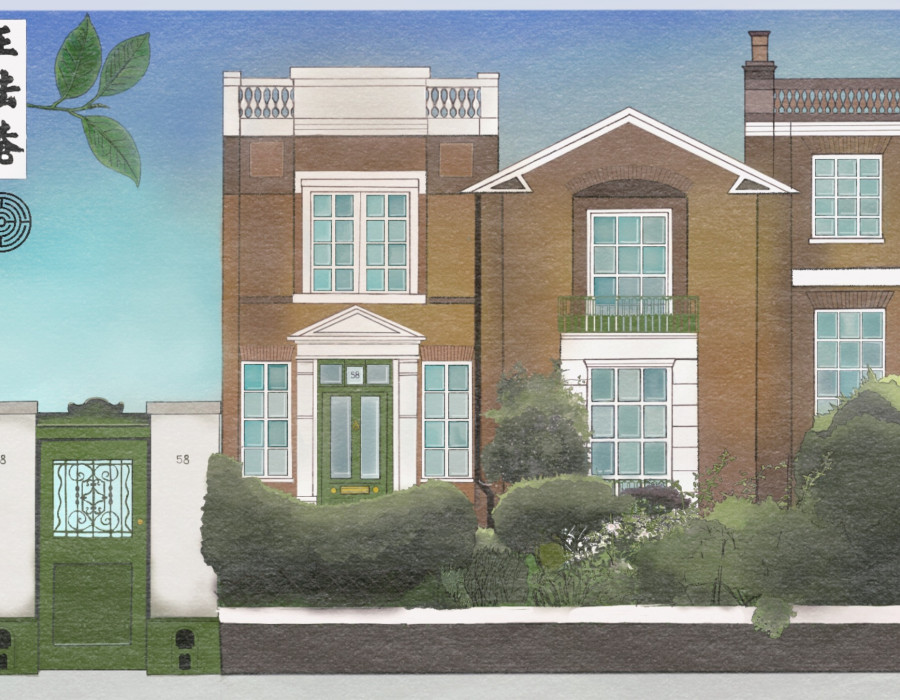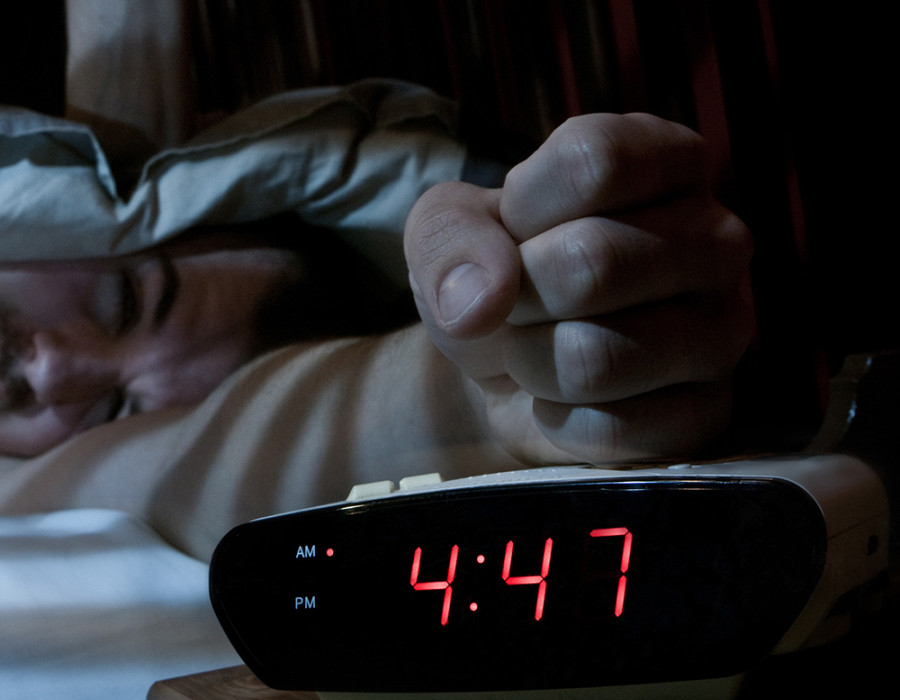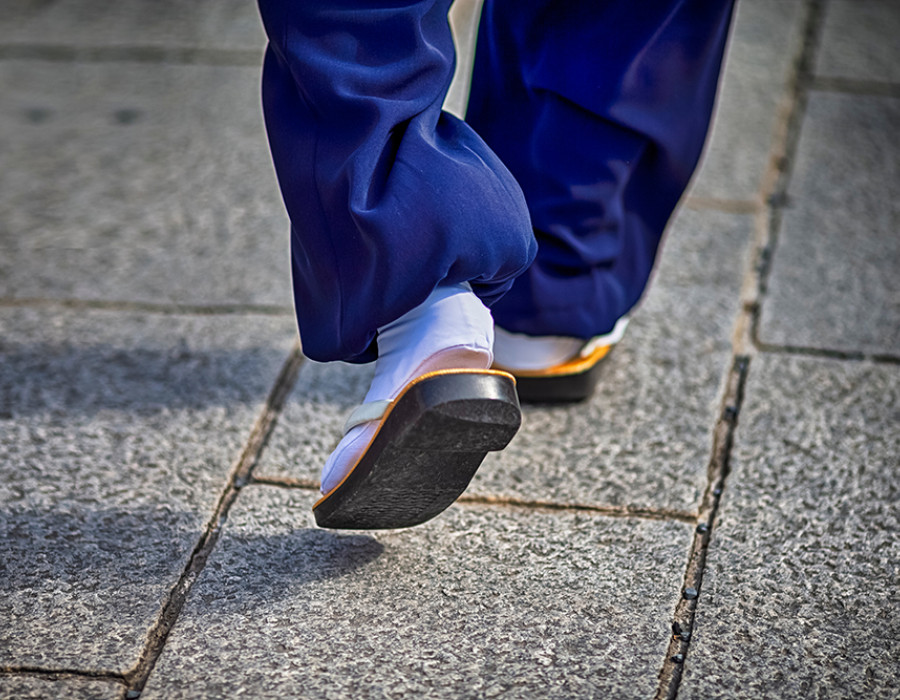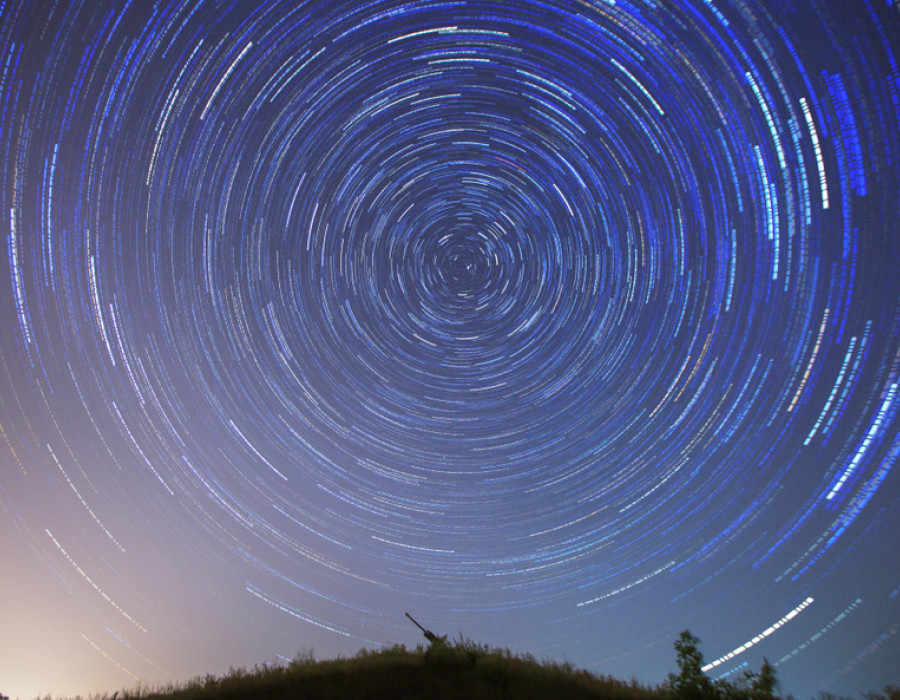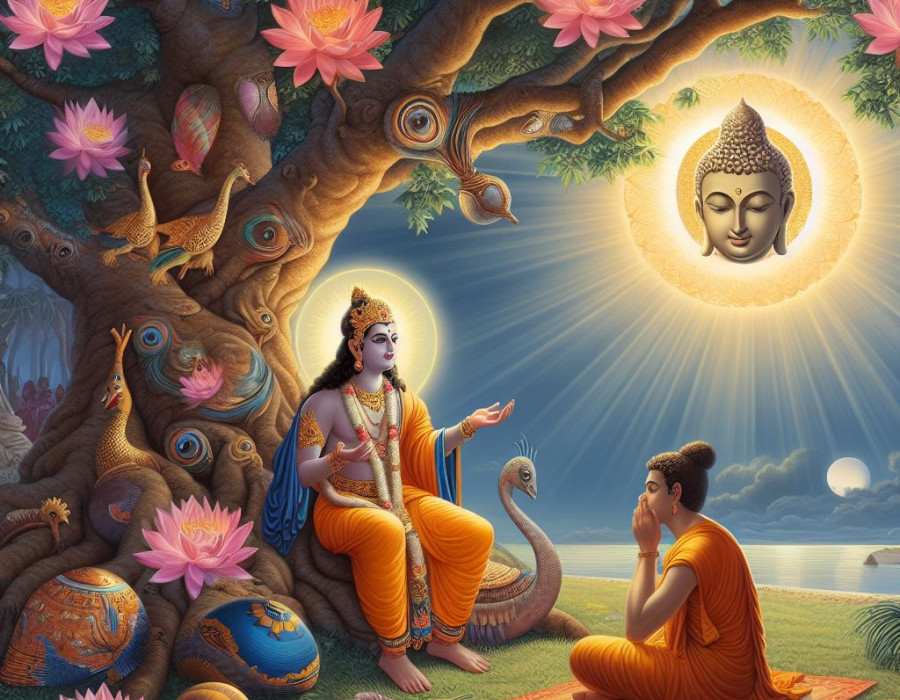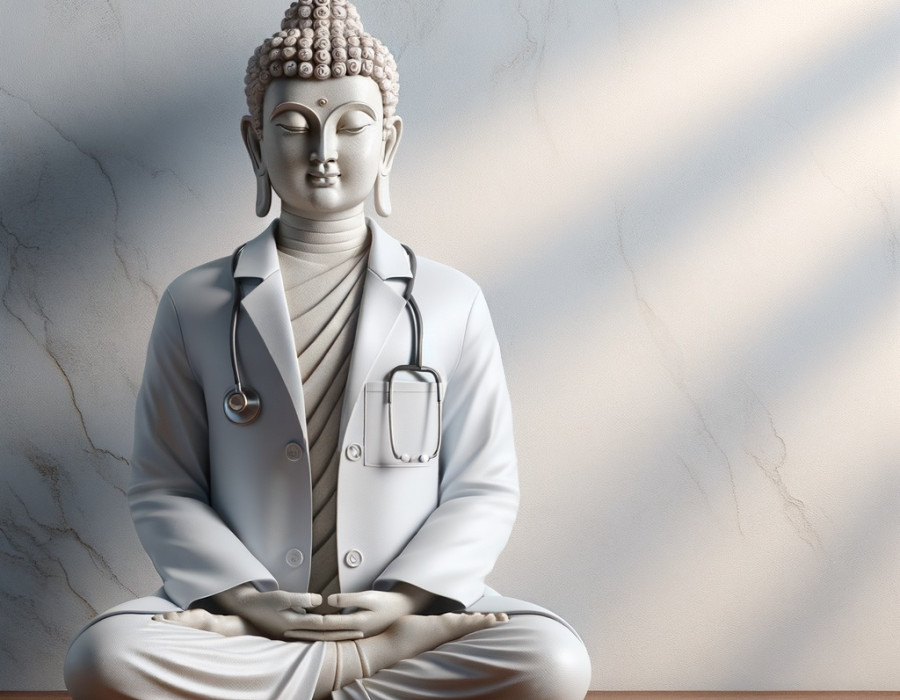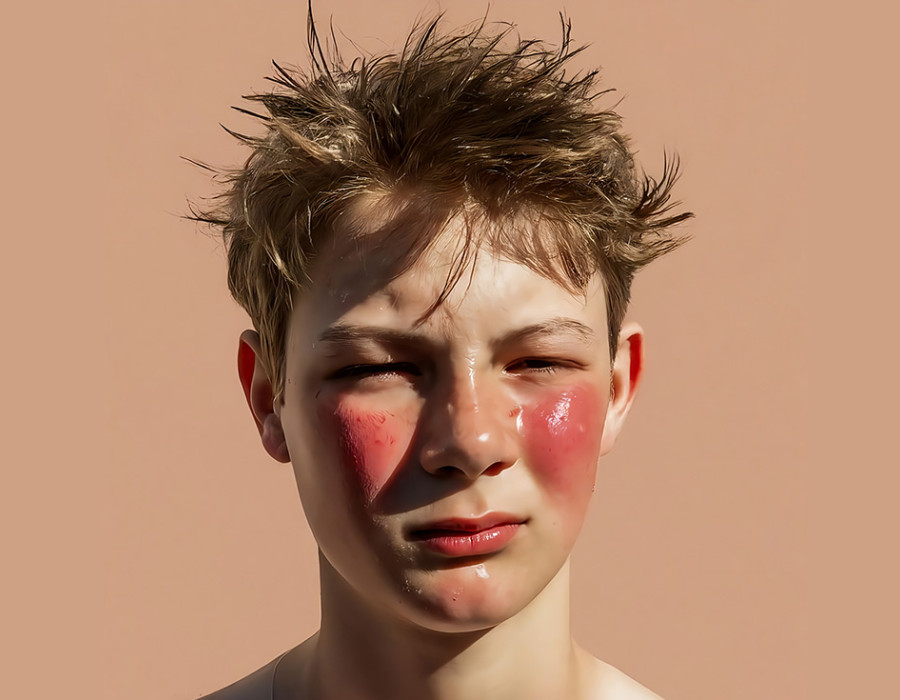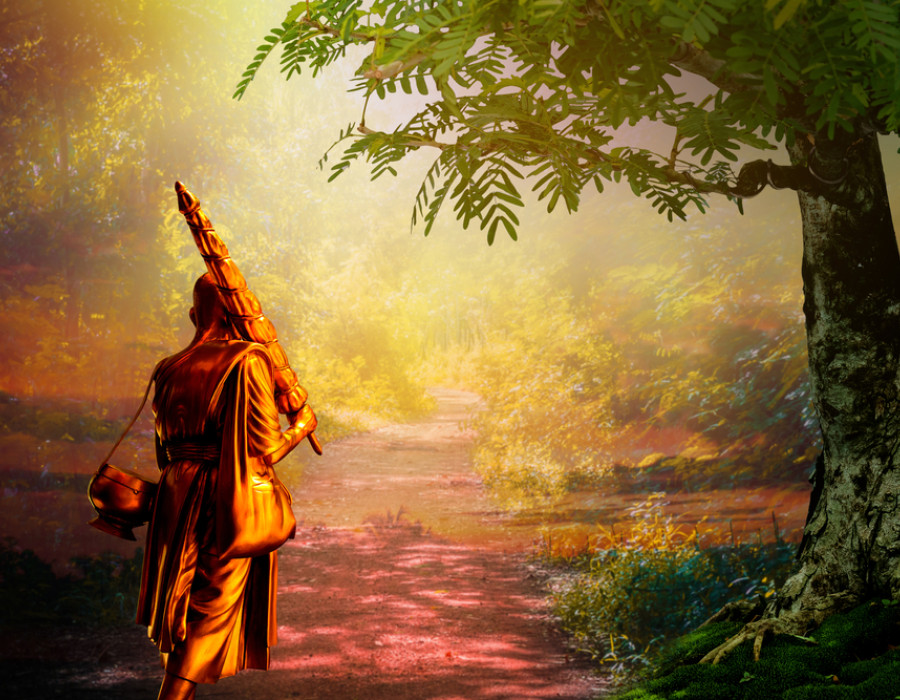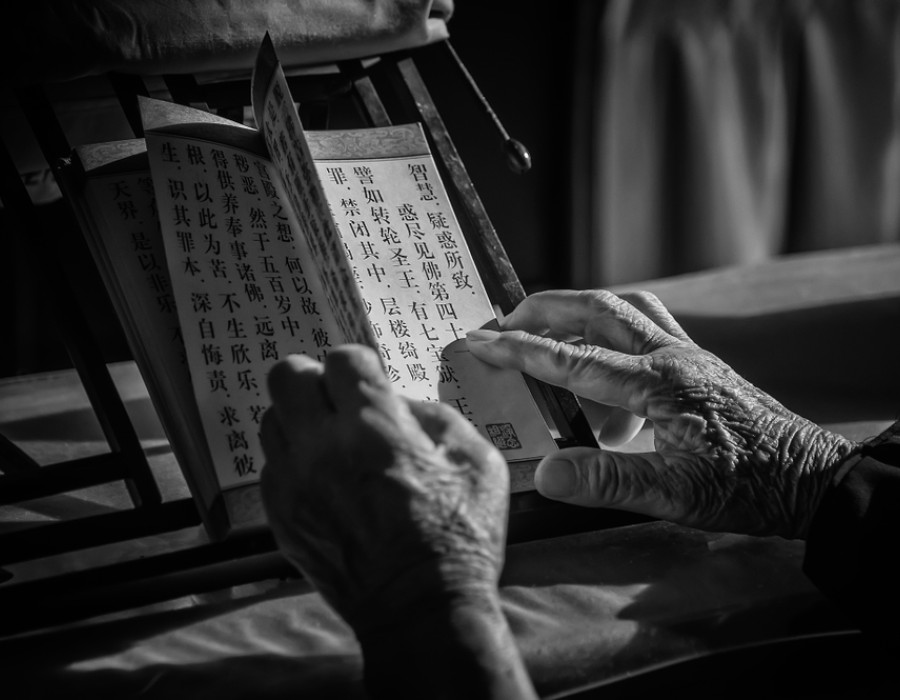21. The Morning Star
THE BUDDHA BLOG
Why is the Buddha’s birthday the same day as his death and enlightenment? Jizo has some interesting ideas about why this could be.
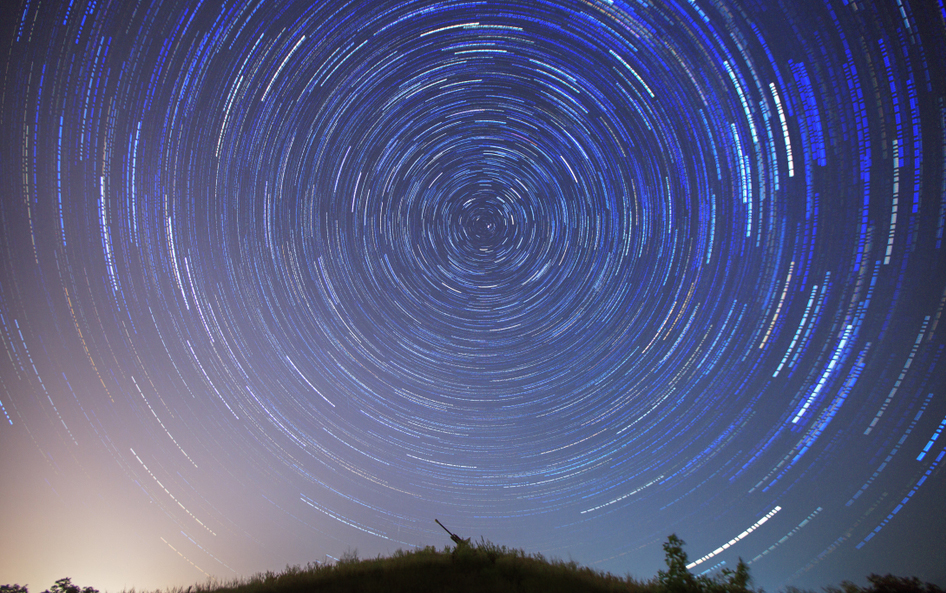 ©
© shutterstock
Jizo told us some more about the Buddha’s life today after our meditation practice.
After his enlightenment, the Buddha sits and meditates for another seven days under the Bodhi tree. Seven days in a trance. Can you believe that! My legs start hurting after twenty minutes and I won’t tell you what’s going on in my head. Then I have to get up and move around. He tells us that in the training monastery in Japan, the monks meditate all day for one solid week every year to celebrate the Buddha’s enlightenment.
On the last day they continue right through the night. There’s the keisaku (the long flat stick) to help them stay awake, but that’s all. The sitting ends just before dawn when the monks file out of the meditation hall and look for the morning star. This is because the Buddha looked up and saw the morning star and was enlightened.
So, every year the monks make a special effort to become like the Buddha. The week always ends on December 8th because in the Northern or Zen Buddhist tradition, December 8th is the Buddha’s enlightenment. But there are other Buddhist countries, like Thailand or Burma, in the Southern tradition who celebrate the Buddha’s enlightenment together with his birthday in May.
It’s question time, so I raise my hand. “Obviously nobody knows when the Prince Siddhartha Gautama was born.”
Jizo smiles. “That’s true, but we celebrate the Buddha’s birthday, not Siddhartha’s. Perhaps that is why Siddhartha had to die before the Buddha could be born. So perhaps that’s why, in the Southern tradition, they celebrate Buddha’s birthday and Siddhartha’s death day together.”
Helen asks Jizo how someone can meditate for that long. She says she’s sure she could never do it. And I agree with her! Then Jizo tells us that when he started, he had all the same problems we do. One day he told his own teacher that he didn’t know how he could make it through the Buddha’s enlightenment week. He wasn’t sure he was strong enough. And his teacher took him outside and pointed to the snow-capped mountain beyond the monastery:
“If you want to get to Mount Fuji you have to put one foot in front of the other. There’s a lot more to it of course but the truly important thing is to keep going, one step at a time. Jizo said that this was the best piece of advice his teacher ever gave him.
Mara Has One More Go
So, the Buddha is sitting under this fig tree having a wonderful time. He’s figured out how to escape from suffering. He’s completely happy and what’s more he feels free in a way he could never imagine before. But if he believes he’s solved all his problems, he got another think coming. Mara shows up again and whispers in his ear: “Who are you going to tell?”
The Buddha understands at once what Mara is driving at and it shakes his confidence. If he tries to teach what he’s discovered, who will listen? Who will try as hard as he has to free himself from the world and all its illusions? Who wants to give up their toy even when it makes them unhappy? At first. he thinks it will be impossible, but his heart is now open to the world. It’s no longer shut off in the palace of me, myself and mine. He wants to reach out to the world and help where he can.
At this point in the story, Brahma shows up. In India there are a lot of gods. Hundreds of them in fact. Everybody in India has their own personal god who they can pray to, but Brahma is the big bloke in the sky. He’s like God. So, God shows up and tells the Buddha that for the good of mankind he has to teach. Now the Buddha sits down under several more trees in the same clearing in the woods and tries to work out what he can say. This time it takes him more than a month!
It’s question time again and Harriet, the girl with the three earrings in each ear, raises her hand. She looks furious. “I thought Buddhism didn’t require you to believe in God. A lot of people in this country don’t believe in God anymore.”
Jizo speaks carefully, like someone picking his way through a minefield. Certainly you don’t have to believe in God to be a Buddhist, but you do need to believe in your own Buddha nature. Harriet frowns, “What is Buddha nature?”
Jizo studies her for a moment. “Ah, that’s a mystery! It can be experienced but it can’t really be described.” Then he gives her one of his toothy grins. “I can tell you this much: whatever you can see or hear or touch or even think about has nothing much to do with Buddha nature.”
Jizo strikes the big gong by his seat at the front of the meditation hall. It has a deep sound that goes right through my skin and makes me forget everything else. It’s the signal that today’s practice session is over.
THE BUDDHA BLOG | Michael Haggiag
Books

